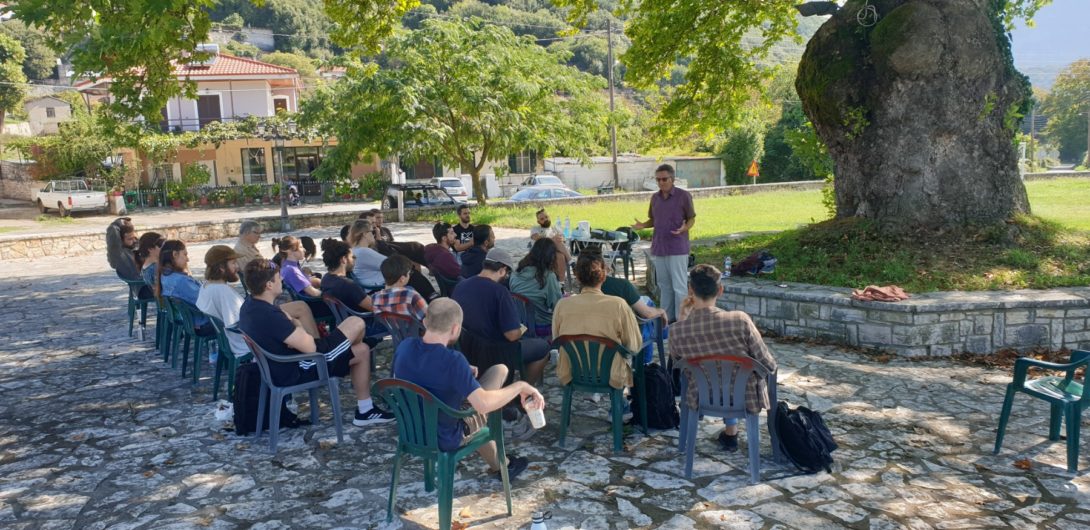Blog
During the summer of 2022, the P2P Lab collective organised two summer schools with
the aim to explore how to create a sustainable economy through the commons and
needs-based design practices. More than 60 persons from 16 countries participated in
the activities. The focus was placed on the phenomenon of “cosmolocalism” that is an
alternative framework for collaborative design and fabrication that links both local and
global communities.
The first summer school titled “Technology, society and the future” investigated
alternative trajectories of techno-social development. It included a theoretical and
hands-on aspect. In the theoretical part, we examined issues like the struggle between
and against low-, mid- and hi-tech over the last century and a half. In the hands-on part,
we organized a workshop on traditional tar production technology and its potential
implications for the commons. This part was facilitated by Boulouki, an interdisciplinary
Greek research collaborative, whose work is focused on the study of traditional building
techniques and materials.
The second summer school titled “Energy as a commons” explored designing a
radically novel energy system that could reconceptualise the material and digital
infrastructure and the political economy that permeates it. Its starting point was the
urgent need to redesign our energy systems and transition to an energy system that not
only produces energy in an environmentally sustainable way, but also socially. In this
direction, this summer school discussed solutions that challenge the very foundation of
current organisational and technological systems for truly impactful energy research. It
explored the potential of energy as a commons in terms of socioenvironmental
sustainability. This refers to a communally produced and managed energy resource
satisfying users’ needs rather than a commodity to maximise profits. Facilitators and
students co-created a learning environment to collaboratively design alternative
technological and organisational trajectories under a commons-based political economy
umbrella. The summer school combined a theoretical and hands-on part blending
formal and non-formal educational techniques. The hands-on exploration was facilitated
by the School of the Earth “Nea Guinea” and culminated in the collaborative building of
an open source small-scale wind turbine.
Regarding our future plans, in September 2023, the Life After Growth summer school
will take place in our Greek pilot area. The goal will be to explore the role of work,
technology, and organisation in designing a post-growth society. In addition, later in
September, the P2P Lab will be hosting the yearly International Conference of
ephemera. Ephemera is an independent, open access journal, active for more than two
decades, publishing critical work on organisation and political theory. The aim of our
activities is to explore the materialities and socialities of post-capitalism and even
design those alternatives.



